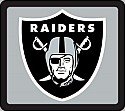
It is a well known fact that Robert E. Lee and George Pickett had a checkered history. The most obvious connection between the two men was the Battle of Gettysburg in 1863. On the third and final day of the battle Lee sent Pickett's Division across a mile of open field to engage the enemy. General Pickett watched in horror as nearly half of his division was utterly destroyed. Pickett was a man with a lot of personal pride and Gettysburg became the beginning of the end for his career and his health. He never forgave Lee but the relationship between the two would continue its downfall.In 1865 as the thinning ranks of Lee's army was barely holding its own around Petersburg, Lee knew that he had to get his army out of there.
A critical crossroads called Five Forks was the key to Lee's escape if Grant was able to push him out of the besieged city. In command of the Confederate defenses at Five Forks was General George Pickett. Lee ordered that Five Forks be held "at all hazzards." Pickett left his headquarters on April 1, 1865 to attend a shad (fish) bake at a neighboring generals tent. This was the sameday that Grant ordered an attack at Five Forks. The Federals easily defeated their enemy and Pickett's troops were routed. Lee was so angered by Picketts behaviour that he ordered his removal from command. Due to the chaos along the retreat Lee's order wasn't carried out. As the Confederates fled Petersburg Lee spotted Pickett riding his horse alongside his men. "Is that man still with the army" he asked his aide. This was a severe rebuke from Lee who was reported to have "always" referred to his fellow officers by name or rank. If Pickett ever heard of Lee's words is unknown but if he did they would have severed their relationship for good.Lets fast forward to 1870 as Robert E. Lee health was slowly fading. He decided to take a trip south during the spring months to restore his failing health with one of his daughters.
After leaving Lexington his first stop was the former Confederate capital at Richmond. Colonel John S. Mosby heard of Lee's arrival and showed up to pay his respects to his former chief. "Both of us were thinking about the war" Mosby later wrote "neither of us referred to it."After a great visit with General Lee, Mosby left and as he walked away from the hotel he encountered General Pickett. The former leader of the most famous charge in American history had fallen on hard times and ended up in the insurance business. How ironic is that? Mosby convinced Pickett to pay his respects to his former commander because according to Mosby, Lee looked "pale and haggard." Basically, Mosby was telling Pickett to see Lee because he didn't look healthy and he could die.Pickett hestitated but eventually both he and Mosby went to visit Robert E. Lee. Their meeting was cold and uncomfortable for all three of them. Both were civil towards one another but Mosby stated that Lee's glacial manner was matched by Pickett's icy demenor.
After a few minutes Mosby broke up the reunion by rising to his feet and leaving with George Pickett. The parting between the two men was brief. Their exact words to one another went unrecorded but what was said afterwards by Pickett was written for prosterity by John Mosby."The old man had my division slaughtered" said Pickett. Obviously these words by Pickett show that he remained bitter over the destruction of his division at Gettysburg. Mosby needed a good reply and he told George Pickett "Well, it made you immortal." Perhaps Mosby was trying to help the old division commander by letting him know that history will forever remember that grand old charge. Author William Fulkner later wrote that every southern boy dreams of it be two o'clock and being a participant of Pickett's Charge. I doubt if George Pickett could see how famous both he and his men are today that he would be happy. It must have been a painful heartache for the old general to bear and there are some things that time never heals.Pickett died in 1875, Lee died in October of 1870 and Mosby survived them both by dying in May 1916. Besides the fact that Pickett's Charge is such a force in popular media concerning the war and tourism at Gettysburg the old general has other forms of imortality. Fort Pickett in Blackstone, Virginia is named in his honor. In Richmond, where Pickett is buried, his former soldiers errected a monument alongside his gravesite that was originally meant to be place on the Gettysburg battlefield. Moreover, history and popular culture have painted Pickett as a tragic hero which is no doubt enhanced by actor Stephen Lang's protrayal of him in the film Gettysburg (1993).
Sources:
Clark, Champ, and the Editors of Time-Life Books, Gettysburg: The Confederate High Tide, Time-Life Books, 1985.
Flood, Charles Bracelen. Lee--the Last Years. Boston: Houghton Mifflin, 1981.





No comments:
Post a Comment